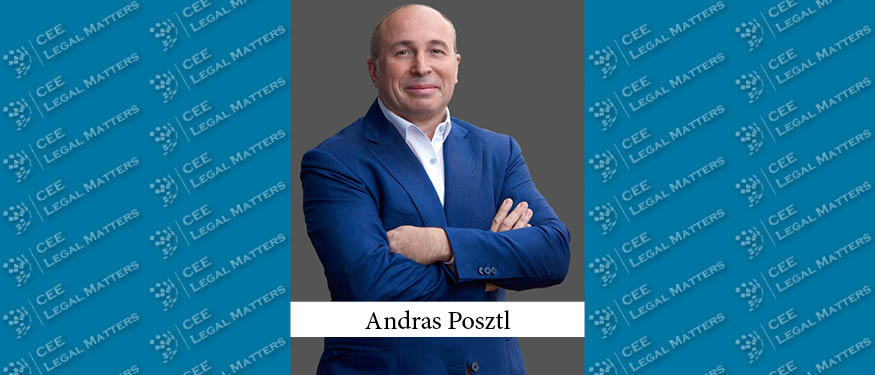Lawyers are keeping busy with new legislation, dispute resolution, and technology work in Hungary, while transactional work and FDIs show a marked slowdown, according to DLA Piper Hungary Country Managing Partner Andras Posztl.
“During springtime, there was a lot of work for parliament – with many EU directives waiting to be transposed into Hungarian law,” Posztl begins. “The new whistleblowing act was one of them. The concept is not new, but Hungary finally implemented the directive, and it will soon be available to every company and be tested in the current geopolitical context. Every company above 50 employees has to operate a whistleblowing system, either directly or through service providers.” He goes on to explain “its effects are expected to impact not only corruption but also discrimination and gender equality. This is a time of gender equalization and the MeToo movement, so tackling discrimination topics in the workplace – including gender and harassment issues – will hopefully create a positive new dynamic in the Hungarian corporate world.”
On the other hand, Posztl mentions “the transaction business is slowing down. And it’s not just due to general trends in Europe – it is slowing down everywhere – but we’re experiencing a bigger slowdown in Hungary. That’s partially because of the very high inflation and our disputes with the EU – with a significant amount of EU subsidies being either frozen, held back, or not allocated at all.” He says that’s creating “uncertainty for investors. Just last week, the figures came out: we are facing the lowest number of investments in many years. This and the cancellation of close to 300 public projects are clearly having a huge impact on the markets and those law firms that are more focused on large scale/transactional work.”
Still, some larger deals are expected soon, Posztl notes, which might improve Hungary’s FDI numbers. “For one, there’s Dunaferr, a vast steel producer built in communist times – that’s grown to be one of the top employers in the country – and has strategic relevance as it’s supplying our extensive car manufacturing industry.” Dunaferr is owned by a joint venture of Russians and Ukrainians and, “because of their ongoing corporate war, is now in an insolvency procedure, with an auction process ongoing,” he explains. “There is much interest from both western and eastern companies – mainly ones with Indian roots – and it will be a big deal when the auction process ends in the coming weeks. We’ll see then whether the company can be saved by a foreign investor, which stands to impact FDI flows in a big way.” Also, he says “there’s a lot of discussion – unclear whether it’s politics or business driven – about the re-privatization of Budapest airport. This won’t happen in the next three or four months, but the intention and the discussions are public.”
And while transactional work is slowing down, Posztl says there’s a “tremendous amount of work on dispute resolution and in the technology space, with many great mandates from international clients or their local subsidiaries.” He highlights that “companies are working out their policies on whether and how they allow the use of ChatGPT and the like. There are a lot of R&D projects on how to use it properly, what kind of benefits it can yield, or which workplace positions are the most threatened. There are limitations still, of course, but it’s an exciting topic for both clients and lawyers themselves.”






















